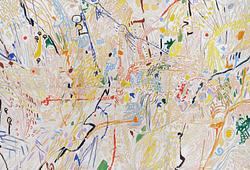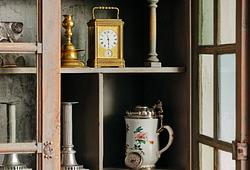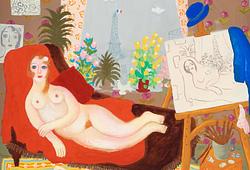Olof Arborelius
View from Capidimonte di Sorrento
Signed OA with rubber stamp. Verso authenticated by the artist’s son Erik T. Arborelius. Oil on canvas glued down on paper-panel 13 x 22.5 cm.
Provenance
The artist’s deceased estate, no. 512; by descent to his son Vicar Erik T. Arborelius (1883-1974); private collection.
Exhibitions
Nationalmuseum, Stockholm, "Olof Arborelius. Minnesutställning”, 11 February - 10 March 1943, no. 48.
More information
Olof Arborelius was in Italy from autumn 1870 until January 1872. The majority of his body of work painted during his stay there are small plein air studies. His Italian studies belongs to the earliest known plein air paintings by a Swedish artist active on the continent during the second half of the nineteenth century, preceded only by Alfred Wahlberg.
Viggo Loos, "Friluftsmåleriets genombrott i svensk konst 1860-85" (The breakthrough of plein air Painting), 1935, writes:
”Alfred Wahlbergs och Gustaf Rydbergs bilder utgöra en uvertyr till vårt friluftsmåleri. Till den uvertyren kunna med full rätt också räknas Arborelius´ italienska studier med sin koloristiska känslighet och sitt intensiva luft- och ljusstudium. I dem nådde konstnären under fransk påverkan en konstnärlig höjdpunkt” ( [The painters] Alfred Wahlberg’s and Gustaf Rydberg’s oil studies represent an overture in Swedish plein air painting. To this selective group can now be added Arborelius’s studies painted in Italy, which are characterized by coloristic sensitivity and intense attention to atmosphere and light. In these, the artist reached an artistic height under the influence of [!] French Painting).
Arborelius sent several of his Italien plein air studies to Stockholm to be exhibited. In a review of an exhibition of his work in December 1871, in the daily Posttidningen, 3 January 1872, the critic, who appears to have been familiar with his earlier works, is overall positive: "De äga nu mer saftighet i koloriten och harmonin” (The coloring and the harmony are considerably stronger than in his previous work).
In the catalogue of the memorial exhibition at Nationalmuseum in 1943, the art historian Folke Holmér wrote:
"Hans skisser från medelhavskusten höra till de mest måleriska i hans tidiga produktion och kunna gott mäta sig med det bästa, som svenska artister överhuvud åstadkommit i Italien" (The sketches he made from the Meditteranian coast belongs to the most painterly in his early production and equals anything a Swedish artist has produced in Italy).
Artist
Olof Arborelius was a Swedish visual artist born in Orsa. He studied at the Royal Academy of Fine Arts in Stockholm on the recommendation of Johan Fredrik Höckerts and was a student of till Richard Bergh. Arborelius was granted a scholarship to travel which he used to visit Düsseldorf, Paris, München, and Rome. Upon his return he became a member of the academy.
Arborelius was a teacher at the Technical School, was associated with Opponents group, and participated in exhibitions organized by the Artist’s Association. He is most notable for his landscape and genre paintings, inspired by Barbizon school of painting. His art is realistic in its expression, and his landscapes are derived from Dalarna, Bergslagen, Schweiz, Italy, Stockholm, and the west coast.









































